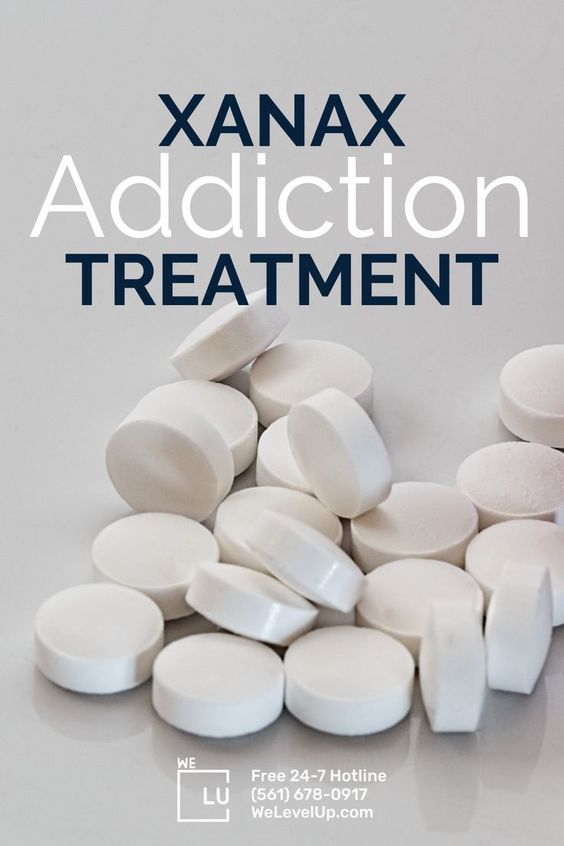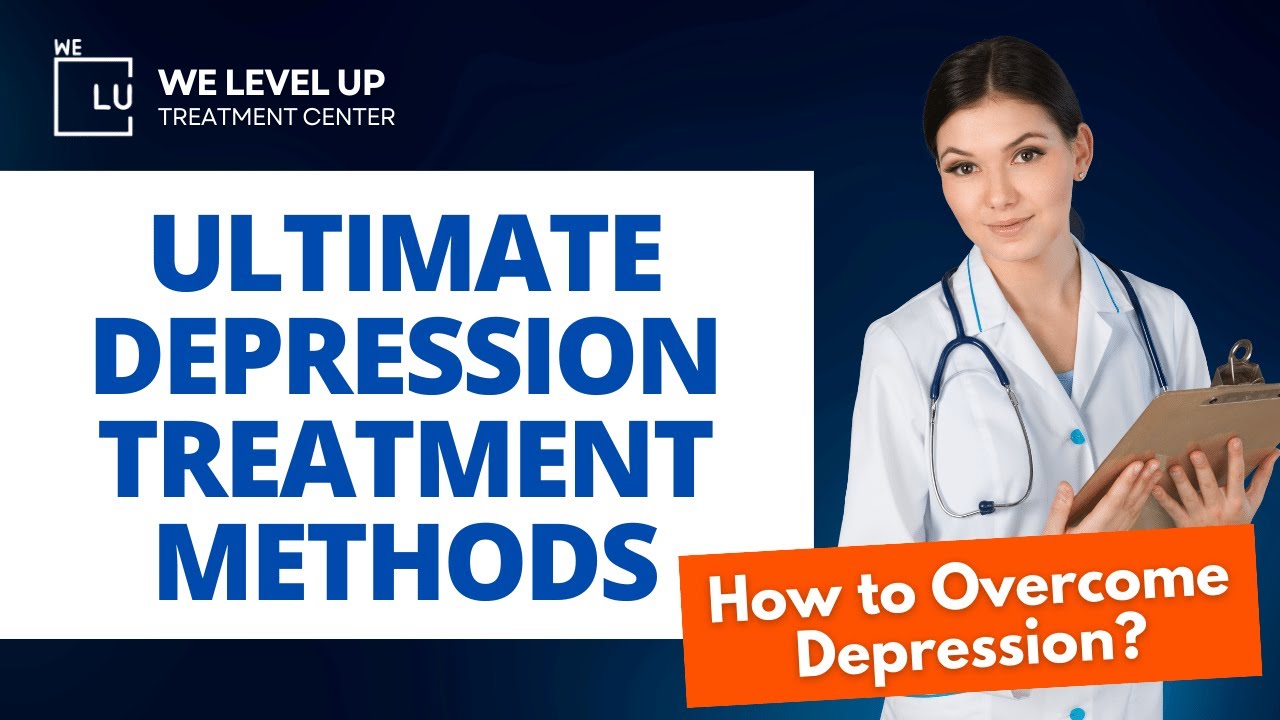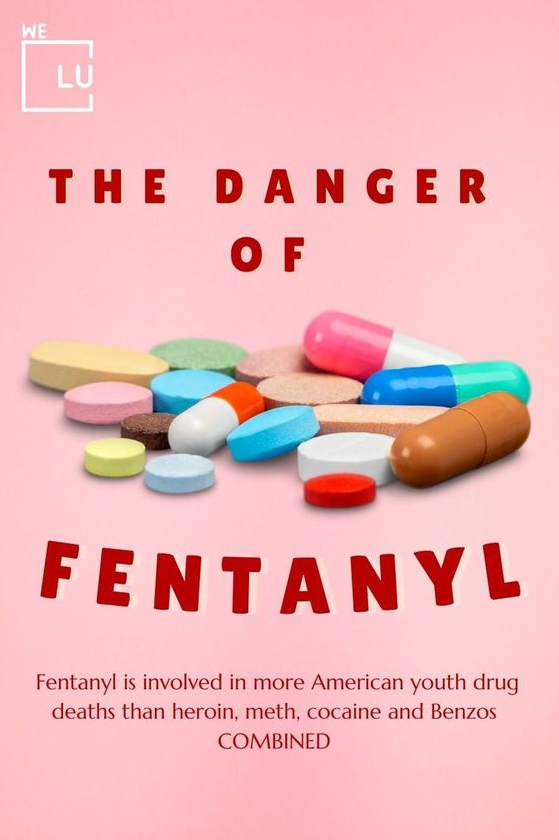Sleeping pills can become habit-forming, a surprising risk. Unknowingly becoming addicted to sleeping pills is common, but the risks are often unknown. Many people become addicted to them despite their harmlessness as a sleep aid. Ambien prescriptions peaked at 38 million between 2006 and 2011.
Even more worrisome is that doctors have quietly supported these pills, giving patients somewhat of a false sense of security. However, the evidence disproves these assumptions. Many take larger doses of these pills to fall asleep, and when people stop taking these drugs, they develop severe withdrawal symptoms, indicating addiction and dependence. If they understand sleeping pill addictions, people can use and quit them safely with few withdrawal symptoms.
If you or a loved one is suffering from a dependence on sleeping pills and are willing to make the courageous decision to face addiction, We Level Up TX Treatment Center has got your back. Your first step in any transformation is always a decisive decision. Call for a free consultation.
Which Sleeping Pills Are Right For Me?
Prescription sleeping pills are designed to produce sleep, keep people asleep longer, or occasionally do both. However, the effects of various prescription sleeping pills vary, so don’t choose blindly. To determine which prescription medication will work best for your sleep problems, your doctor will usually:
- Inquire about your sleep patterns to gain a comprehensive understanding.
- Conduct tests to eliminate any underlying conditions contributing to sleep difficulties.
- Engage in discussions regarding options for taking prescription sleeping medicine, including dosage frequency, timing, and administration forms like pills, oral sprays, or dissolving tablets.
- Prescribe a sleeping pill for a limited duration to evaluate its benefits and potential side effects for your specific case.
- Consider alternative prescription sleeping medications if the initial medication doesn’t yield the desired results after completing the prescribed course.
- Assist in identifying generic versions, typically more cost-effective than brand-name medications.
Insurance providers might impose restrictions on the coverage of specific sleeping pills, often requiring attempts at alternative management strategies for insomnia before approving coverage. These strategies are aimed at managing insomnia and may need to be explored before resorting to prescription sleeping pills.
Types of Sleeping Pills
Benzodiazepines
Benzos are perhaps the most common sleeping medication. Benzos have been shown to raise levels of sedative hormones in your body.
Non-Benzos
Zolpidem, Eszopiclone, Zaleplon: Similar to Benzos, these drugs elevate GABA levels but work specifically on specific brain receptors to aid sleep without causing daytime drowsiness.
Melatonin Receptor Agonists
Ramelteon (Rozerem): It impacts melatonin receptors in the brain, similar to the natural sleep-inducing hormone melatonin.
Orexin Receptor Antagonist
Suvorexant (Belsomra): This drug blocks the action of orexin, a neurotransmitter associated with wakefulness and agitation.
Tricyclic Antidepressants
Amitriptyline, Doxepin: Some tricyclic antidepressants, when taken in low doses, can produce a soothing effect, serving as sleep medication.

Skip To:
Learn More:
Over-the-Counter Sleeping Pills
OTC sleep aide drugs are procured without prescription in pharmacies and supermarkets. Natural sleeping medications like melatonin generally needn’t apply to or be reviewed by the FDA for approval. According to the FDA, most non-prescription sleeping pills contain antihistamines that induce drowsiness.
Dietary Supplements
Many sleeping aids are sold as supplements, which don’t need the approval of a governing body before they can be marketed. However, supplements usually made with naturally found ingredients are not recommended or approved since there is little research or clear studies about their effectiveness and safety.
Get Help. Get Better. Get Your Life Back.
Searching for Accredited Drug and Alcohol Rehab Centers Near You? We Level Up Texas Is Opening Soon!
Even if you have failed previously and relapsed, or are in the middle of a difficult crisis, we stand ready to support you. Our trusted behavioral health specialists will not give up on you. When you feel ready or just want someone to speak to about therapy alternatives to change your life call us. Even if we cannot assist you, we will lead you to wherever you can get support. There is no obligation. Call our network hotline today.
FREE Addiction Hotline – Call 24/7
Sleeping Pill Addiction Dangers
The reality of sleeping pill addiction is that it can exacerbate the cycle of dependence with potentially harmful consequences. Awareness can help individuals make informed choices about their sleep pill products. Remember, if you’re struggling with sleep, there are many ways to catch some Zs. Below are some of the risks many consumers may not realize about sleeping pills addiction risks.
- Sleeping Pills: Friend or Foe? While this medication can initially seem like magic sleep dust, relying on them long-term can backfire, making it harder to drift off naturally without them.
- More Than Just Groggy Mornings: The side effects of addiction go beyond feeling like you stumbled out of bed after hitting snooze too many times. Memory fog, weakened immunity, and even upping your fall risk are some unwelcome guests this dependence can bring.
- A Slippery Slope? Sometimes, sleeping pill dependence can be like dominoes – falling for one can knock over others, increasing the risk of getting hooked on other substances.
- Don’t Believe the Hype: There’s a lot of talk about these pills being harmless shortcuts to sleep, but that’s not the whole story. Knowing the potential downsides and exploring other sleep solutions, like calming bedtime routines or stress management techniques, is crucial before you get caught in the cycle of dependence.
6 Most Addictive Sleeping Pills
While medications like Xanax and Ativan can be helpful for short-term relief of anxiety or insomnia, they’re like crutches: great for getting you through a rough patch, but not meant to rely on long-term. This is because they belong to a family of drugs called benzodiazepines, which are more likely to be habit-forming and cause withdrawal symptoms if used for extended periods.
| Sleeping Pill | Drug Class | Potential for Addiction | Common Side Effects |
|---|---|---|---|
| Ambien (Zolpidem) | Non-Benzodiazepine | Moderate to High | Dizziness, Drowsiness, Headache |
| Lunesta (Eszopiclone) | Non-Benzodiazepine | Moderate to High | Bitter Taste, Dry Mouth, Dizziness |
| Sonata (Zaleplon) | Non-Benzodiazepine | Moderate | Dizziness, Headache, Drowsiness |
| Xanax (Alprazolam) | Benzodiazepine | High | Drowsiness, Fatigue, Memory Problems |
| Ativan (Lorazepam) | Benzodiazepine | High | Dizziness, Weakness, Unsteadiness |
| Restoril (Temazepam) | Benzodiazepine | High | Drowsiness, Dizziness, Nausea |
What are the Side Effects of Sleeping Pills?
Short-term sleeping pills improve sleep quality. Healthy sleep habits are essential to prevent acute adult sleep problems from becoming chronic. Studies have shown that long-term sleeping pill use is risky. One study found that three-year hypnotic or anti-anxiety drug users have a higher mortality rate.
This suggested limiting their use to two to four weeks. Over two years, sleeping pill users—particularly benzodiazepines—had a higher death rate. Such research suggests that long-term sleeping medication use should be avoided.
| Side Effects | Severity | Duration |
|---|---|---|
| Drowsiness | Mild to severe | May persist into the following day |
| Dizziness | Mild to moderate | Varies; typically short-lived |
| Headache | Mild to severe | Varies; typically short-lived |
| Nausea | Mild to moderate | Varies; typically short-lived |
| Constipation | Mild to moderate | Varies; may persist |
| Dry Mouth | Mild to moderate | Varies; typically short-lived |
| Cognitive Impairment | Mild to moderate | May persist into the following day |
| Daytime Sleepiness | Mild to severe | May persist into the following day |
| Allergic Reactions | Mild to severe | Varies; seek immediate medical help if severe |
| Behavioral Changes | Mild to severe | Varies; can be dangerous |
| Dependency Risk | Mild to severe | Potentially long-term with prolonged use |
| Withdrawal Symptoms | Mild to severe | Varies; can last for days to weeks |
Get Help. Get Better. Get Your Life Back.
Searching for Accredited Drug and Alcohol Rehab Centers Near You? We Level Up Texas Is Opening Soon!
Even if you have failed previously and relapsed, or are in the middle of a difficult crisis, we stand ready to support you. Our trusted behavioral health specialists will not give up on you. When you feel ready or just want someone to speak to about therapy alternatives to change your life call us. Even if we cannot assist you, we will lead you to wherever you can get support. There is no obligation. Call our network hotline today.
FREE Addiction Hotline – Call 24/7What Do Sleeping Pills Treat?
Insomnia:
For those who cannot find sleep on their own and those who can’t sleep for longer, sleeping pills can get the ball rolling and make you sleep better.
Shift Work Sleep Disorder:
People who work irregular hours–night shifts, for example–have problems resulting from disrupting their sleep-wake cycles. They can use sleeping pills to adjust and improve their sleep.
Jet Lag:
Sleeping pills, especially those aimed at adjusting the asleep-awake cycle, effectively relieve jet lag and adapt to a new time zone.
Sleeping pills can also be used to treat restless legs syndrome or periodic limb movement disorder.

Although sleeping pills are still an important drug to control sleep problems, for several reasons, they should only be taken during a quick-fix course of treatment.
Then, the sooner one can eliminate their harmful side effects and dependency risks, as well as get at the root causes behind insomnia disorders, the better it is for each individual’s health in general.
Hence, lifestyle and behavioral changes, not to mention lessening the factors that lead to poor sleep hygiene, are frequently incorporated into a treatment plan.
People suffering from sleep difficulties that last for extended periods are advised to seek medical advice, to decide which is the best course.
Start a New Life
Begin with a free call to an addiction & behavioral health treatment advisor. Learn more about our dual-diagnosis programs. The We Level Up treatment center network delivers recovery programs that vary by each treatment facility. Call to learn more.
- Personalized Care
- Caring Accountable Staff
- World-class Amenities
- Licensed & Accredited
- Renowned w/ 100s 5-Star Reviews
We’ll Call You
Risks and Benefits of Sleeping Pills
The potential benefits of sleep medications include enhanced sleep duration, improved ability to sleep through the night, and establishing a more consistent sleep schedule. Better sleep can alleviate daytime sleepiness and assist in resetting sleep patterns to encourage healthier habits.
On the contrary, there are potential downsides to taking sleep aids, which can vary depending on the specific medication and individual reactions. Some of the risks associated with sleep aids involve:
- Habit Formation: Long-term use may lead to dependence, causing worsening sleep problems or withdrawal symptoms upon abrupt cessation.
- Decreased Effectiveness: Tolerance can develop, reducing the medication’s efficacy and potentially exacerbating side effects if the dosage is increased.
- Excessive Grogginess: Sleepiness induced by these aids may impair thinking and balance, posing an increased risk of nighttime falls, especially among older adults and individuals with conditions such as dementia.
- Next-Day Drowsiness: Residual effects, such as trouble concentrating or groggy, can persist upon waking, affecting up to 80% of individuals using sleep aids.
- Complex Sleep Behaviors: Sleep aids like Ambien have been linked with events where individuals who drive or work are not fully awake.
- Risk of Car Accidents: Studies also reveal that people who use sleep aids have reduced alertness and impaired judgment, which can lead to harmful or worse accidents than if those people were behind the wheel.
- Disturbed Sleep Quality: Many sleep aids affect time in bed and the five stages of normal sleep, ultimately producing quality changes. For example, some sedatives are going to raise the probability of obstructive sleep apnea.
- Interactions with Other Drugs: Alone, sleep aids affect the central nervous system and result in interactions that either increase or decrease their effects.
- Other Side Effects: Sleep aids might present various side effects, including a higher risk of death associated with secondary risks like depression, cancer, infections, or accidents.
- Mislabeled Supplements: Dietary supplements may inaccurately list dosages, and the FDA has reported instances of tainted sleep aids containing detectable levels of other drugs. This issue extends beyond sleep aids and affects other supplements as well.
Opening Soon! First-Class Facilities & Amenities
World-Class High-Quality Addiction & Mental Health Rehabilitation Treatment
Coming Soon! Rehab Centers TourRenowned Addiction Centers. Serene Private Facilities. Inpatient Rehab Programs Vary.
FREE Addiction Hotline – Call 24/7Proven recovery success experience, backed by a Team with History of:
- 15+ Years Experience
- 100s of 5-Star Reviews
- 10K+ Recovery Successes
- Low Patient to Therapist Ratio
- Onsite Medical Detox Center
- Comprehensive Dual-Diagnosis Treatment
- Complimentary Family & Alumni Programs
- Coaching, Recovery & Personal Development Events
Who Should and Should Not Use Sleeping Pills?
Using these pills under the expert guidance of a medical professional who knows the appropriate dosages and advises on the timing of consumption is most likely to yield effective results.
For adults who are presumably healthy, short-term use of sleeping pills often has little side effect, though its impact largely depends on the type of sleep aid.
However, specific groups of individuals should typically avoid taking sleeping pills without consulting a doctor due to an increased risk of side effects:
- People with mobility issues: Elderly individuals, mainly, are more prone to accidents and falls due to excessive grogginess caused by sleep aids.
- Pregnant women: Several sleep medications can have adverse effects on pregnant women or their unborn babies.
- Children: Sleep medications designed for adults might not be suitable or safe for children, requiring lower or specific dosages.
- Individuals with existing health conditions: The potential effects of drugs and supplements on physical or mental health warrant caution for those with underlying health issues.
Top 5 Tips to Ensure Safe Use of Sleep Medications
Regardless of the type of sleep medication, there are several precautions for safe usage.
Step 1: Consult a doctor about your sleep issues and identify which sleep aid offers the most benefits with minimal drawbacks. Understanding the underlying problem, including factors like depression, anxiety, health conditions, or medications causing sleep disturbances, is crucial.
Step 2: Recognize that these drugs are typically not meant for prolonged use. The aim is short-term assistance while fostering healthy sleep habits for long-term benefits.
Step 3: Confirm with your doctor or pharmacist whether the dosage suits your needs. For instance, the FDA has recommended lower doses for some sleep medications, especially for women, to mitigate next-day drowsiness.
Step 4: Adhere strictly to the prescribed instructions for taking your sleep medication. Follow the correct dosage and timing to maximize its effectiveness and minimize morning grogginess.
Step 5: Monitor for potential adverse effects while taking the medication and promptly discuss any concerning symptoms with your doctor. Look out for signs such as daytime drowsiness, instability, changes in mood or breathing during sleep, withdrawal symptoms, or unexplained health changes.
Popular Alternative Treatments for Sleep Issues
Aside from sleeping pills, healthcare providers may propose various methods to address insomnia:
- Ultraviolet (UV) Light Therapy: This therapy involves exposure to a bright light box, akin to natural sunlight, which helps regulate melatonin levels and readjust the sleep-wake cycle.
- Orofacial Therapy: Exercises targeting the mouth and tongue muscles are used to strengthen them. Healthcare providers might recommend orofacial therapy as a remedy for sleep apnea.
- Cognitive Behavioral Therapy (CBT): Often considered an initial step in treating chronic insomnia, CBT focuses on resetting attitudes toward sleep and insomnia. This therapy assists in relaxation and maintaining sleep. Some evidence suggests that CBT and lifestyle adjustments are more effective in treating long-term insomnia than prescription medications. Spending a few sessions with a therapist can equip individuals with applicable techniques for an extended period.
Therapist Advice About Destressing For Better Sleep While in Recovery
Search We Level Up TX Understanding Sleeping Pills, Types, Uses, and Side Effects Topics & Resources
Sources
- National Center for Chronic Disease Prevention and Health Promotion, Division of Population Health. (2017, May 2). Short sleep duration among US adults. Centers for Disease Control and Prevention., Retrieved November 24, 2020, fromhttps://www.cdc.gov/sleep/data_statistics.html Sleeping Pills, Ambien Sleeping Pill, Strongest Sleeping Pills, Over The Counter Sleeping Pills, Melatonin Sleeping Pills – Related Articles
- U.S. Centers for Disease Control and Prevention (CDC). (2019, December 13). QuickStats: Percentage of Adults Aged ≥18 Years Who Took Medication To Help Fall or Stay Asleep Four or More Times in the Past Week, by Sex and Age Group — National Health Interview Survey, United States, 2017–2018. MMWR Morb Mortal Wkly Rep 2019;68:1150. DOI:https://pubmed.ncbi.nlm.nih.gov/31830011/ Sleeping Pills, Ambien Sleeping Pill, Strongest Sleeping Pills, Over The Counter Sleeping Pills, Melatonin Sleeping Pills – Related Articles
- Lie, J. D., Tu, K. N., Shen, D. D., & Wong, B. M. (2015). Pharmacological treatment of insomnia. P & T: A Peer-Reviewed Journal for Formulary Management, 40(11), 759–771.https://pubmed.ncbi.nlm.nih.gov/26609210/ Sleeping Pills, Ambien Sleeping Pill, Strongest Sleeping Pills, Over The Counter Sleeping Pills, Melatonin Sleeping Pills – Related Articles
- Sateia, M. J., Buysse, D. J., Krystal, A. D., Neubauer, D. N., & Heald, J. L. (2017). Clinical practice guideline for the pharmacologic treatment of chronic insomnia in adults: An American Academy of Sleep Medicine clinical practice guideline. Journal of Clinical Sleep Medicine, 13(2), 307–349.https://pubmed.ncbi.nlm.nih.gov/27998379/ Sleeping Pills, Ambien Sleeping Pill, Strongest Sleeping Pills, Over The Counter Sleeping Pills, Melatonin Sleeping Pills – Related Articles
- Pagel, J. F., & Parnes, B. L. (2001). Medications for the treatment of sleep disorders: an overview. Primary Care Companion to the Journal of Clinical Psychiatry, 3(3), 118–125.https://pubmed.ncbi.nlm.nih.gov/15014609/ Sleeping Pills, Ambien Sleeping Pill, Strongest Sleeping Pills, Over The Counter Sleeping Pills, Melatonin Sleeping Pills – Related Articles
- Seol, J., Fujii, Y., Park, I., Suzuki, Y., Kawana, F., Yajima, K., Fukusumi, S., Okura, T., Satoh, M., Tokuyama, K., Kokubo, T., & Yanagisawa, M. (2019). Distinct effects of orexin receptor antagonist and GABAA agonist on sleep and physical/cognitive functions after forced awakening. Proceedings of the National Academy of Sciences of the United States of America, 116(48), 24353–24358.https://pubmed.ncbi.nlm.nih.gov/31712421/
- Everitt, H., Baldwin, D. S., Stuart, B., Lipinska, G., Mayers, A., Malizia, A. L., Manson, C. C., & Wilson, S. (2018). Antidepressants for insomnia in adults. The Cochrane database of systematic reviews, 5(5), CD010753.https://pubmed.ncbi.nlm.nih.gov/29761479/
- Asnis, G. M., Thomas, M., & Henderson, M. A. (2015). Pharmacotherapy Treatment Options for Insomnia: A Primer for Clinicians. International journal of molecular sciences, 17(1), 50.https://pubmed.ncbi.nlm.nih.gov/26729104/
- Houghton, K. T., Forrest, A., Awad, A., Atkinson, L. Z., Stockton, S., Harrison, P. J., Geddes, J. R., & Cipriani, A. (2017). Biological rationale and potential clinical use of gabapentin and pregabalin in bipolar disorder, insomnia and anxiety: protocol for a systematic review and meta-analysis. BMJ open, 7(3), e013433.https://pubmed.ncbi.nlm.nih.gov/28348186/
- U.S. Food and Drug Administration (FDA). (2017, November 13). Prescription drugs and over-the-counter (OTC) drugs: Questions and answers.https://www.fda.gov/drugs/questions-answers/prescription-drugs-and-over-counter-otc-drugs-questions-and-answers
- Culpepper, L., & Wingertzahn, M. A. (2015). Over-the-Counter Agents for the Treatment of Occasional Disturbed Sleep or Transient Insomnia: A Systematic Review of Efficacy and Safety. The primary care companion for CNS disorders, 17(6), 10.4088/PCC.15r01798.https://pubmed.ncbi.nlm.nih.gov/27057416/
- National Center for Complementary and Integrative Health. (2018, December). Using dietary supplements wisely., Retrieved November 25, 2020, fromhttps://www.nccih.nih.gov/health/using-dietary-supplements-wisely
- National Center for Complementary and Integrative Health. (2021, January). Melatonin: What you need to know., Retrieved November 25, 2020, fromhttps://www.nccih.nih.gov/health/melatonin-what-you-need-to-know
- Aurora, R. N., Kristo, D. A., Bista, S. R., Rowley, J. A., Zak, R. S., Casey, K. R., Lamm, C. I., Tracy, S. L., Rosenberg, R. S., & American Academy of Sleep Medicine (2012). The treatment of restless legs syndrome and periodic limb movement disorder in adults—n update for 2012: Practice parameters with an evidence-based systematic review and meta-analyses: An American Academy of Sleep Medicine Clinical Practice Guideline. Sleep, 35(8), 1039–1062.https://pubmed.ncbi.nlm.nih.gov/22851801/
- Schroeck, J. L., Ford, J., Conway, E. L., Kurtzhalts, K. E., Gee, M. E., Vollmer, K. A., & Mergenhagen, K. A. (2016). Review of Safety and Efficacy of Sleep Medicines in Older Adults. Clinical therapeutics, 38(11), 2340–2372.https://linkinghub.elsevier.com/retrieve/pii/S0149291816307330
- Schwab, R. J. (2020, June). Approach to the patient with a sleep or wakefulness disorder. Merck Manual Professional Version.https://www.merckmanuals.com/professional/neurologic-disorders/sleep-and-wakefulness-disorders/approach-to-the-patient-with-a-sleep-or-wakefulness-disorder






